#Terry Eagleton
Text
"If we are inspired only by literature that reflects our own interests, all reading becomes a form of narcissism."
- Terry Eagleton
#Terry Eagleton#dark academia quotes#escapism#dark academia#chaotic academia#bookblr#books & libraries#poets on tumblr#writers on tumblr#spilled literature#spilled words#romantic academia#reading#text#txt#poetry#aesthetic#literature quotes
82 notes
·
View notes
Text
Angelic and Demonic views on human existence...
(from Terry Eagleton's Humour, talking about Milan Kundera's The Book of Laughter and Forgetting)
"Angels see an orderly world, harmonious, full of sense. In the kingdom of angels, everything is instantly, oppressively meaningful, and no ambiguity can be tolerated. The whole reality is drearily legible and intelligible (...) there is no room for the random or contingent. Whatever happens happens by necessity, as part of some grand narrative in which every feature of existence has its alloted function. Nothing os negative, awry, deficient or disfunctional; instead, in this anodyne angelic vision, humankind marches beaming towards the future, shouting 'Long Live Life!' There is a civilised mode of laughter associated with this way of seeing - a rejoicing over how shapely, meaningful and wisely conceived the world is (...) In this euphoric realm, there are no catastrophes, simply challenges. The speech to which it gives rise is what Kundera calls 'shitless', whereas the demonic is full of shit. As we have seen already, it revels in the vision of a world purged of meaning and value, one in which everything is excrementally indistinguishable from everything else, If the angelic suffers from an excess of meaning, the demonic is afflicted by a lack of it."
"Even so, the demonic has its uses. Its role in social existence is to disrupt the anodyne certainties of the angelic by figuring as the grit in its oyster, the glitch in its mechanism, the perverse, refractory factor in any social order (...) The demonic is the cackle of mocking laughter which deflates the pretensions of the angelic, puncturing its portentousness. It is, as the Devil himself comments in Dostoevsky's The Brothers Karamazov, the wayward, cross-grained element which prevents the world from collapsing on itself under the weight of its own suffocating blandness, His own role, he tells Ivan Karamazov, is to act as a form of friction or negativity within God's Creation, one which will prevent it from withering away from sheer boredom. Without him, the world would be 'nothing but Hossanas'. If this deviant factor were to be expunged, cosmic order would break out and put an end to everything. Devils are natural deconstructionists."
"Humour of this kind is the amusement that springs from things being out of order, estranged or defamiliarised, deprived for a moment of their alloted role in the overall scheme of things. We laugh when some phenomenon seems suddenly out of place, when things go off the rails or are thrown out of kilter. Such comedy represents a momentary respite form the tyrannical legibility of the world, a realm of lost innocence which predates our calamitous fall onto meaning (...) It is not surprising, then, that the demonic is so often associated with humour - that hell traditionally resounds with the obscene cackling, sniggering and guffawing of those lost souls who believe they have seen through human value and exposed it as the pompous fraud that it is (...) The demonic versus the angelic is Iago versus Othello, or Milton's smouldering Satan against his constipated bureaucrat of a Deity. 'Laughter is Satanic,' writes Charles Baudelaire; 'it is therefore profoundly human.' The devils cannot suppress a spasm of incredulous laughter at the sheer gullibility of men and women, their pathetic eagerness to believe that their gratuitous, paper-thin meanings and values are solid as flatirons."
So... I was reading and found this that feels so clearly as "meta fuel" that I had to share with the class. If I was writing an essay on this themes in Good Omens, I'd probably cite this text A LOT. As I'm not doing it, but I know here we have a lot of "interested parties", I decided to bring the reference for everybody's enjoyment.
(I adore reading Terry Eagleton's reflections about almost anything, really. It was a surprise to find this today!)
10 notes
·
View notes
Text
nesneler bir hayal olsun ya da olmasın fark etmez, ben de nihayet bir hayal sayılırım ve böyle bir durumda ben nasılsam nesneler de öyle demektir.
hermann hesse - siddhartha
#hermann hesse#siddhartha#edebiyat#kitap#felsefe#blogger#kitaplar#blog#kitap kurdu#şiir#felsefe blog#buddha#ursula k. le guin#mülksüzler#charles bukowski#music blog#albert camus#william shakespere#hamlet#terry eagleton#huzursuzluğun kitabı#fernando pessoa#alain de botton#marcel proust#georges perec#uyuyan adam#selçuk baran#platon#marcus aurelius#kendime düşünceler
7 notes
·
View notes
Text
“Heathcliff moves from being natural in the sense of an anarchic outsider to adopting the behaviour natural to an insider in a viciously competitive society. (…) Heathcliff the adult is in one sense an inversion, in another sense an organic outgrowth, of Heathcliff the child. Heathcliff the child was an isolated figure whose freedom from given genealogical ties offered, as I have argued, fresh possibilities of relationship; Heathcliff the adult is the atomic capitalist to whom relational bonds are nothing, whose individualism is now enslaving rather than liberating”.
From Terry Eagleton’s essay “Wuthering Heights”
59 notes
·
View notes
Link
A new slate of book reviews for 2023.
#The Blade Between#Sam J. Miller#Iron Widow#xiran jay zhao#How to Read a Poem#Terry Eagleton#Echopraxia#Peter Watts#Staying With the Trouble#Donna J. Harraway#The Orange Eats Creeps#Grace Krilanovich#The Hollow Kind#Andy Davidson#Cultish#Amanda Montell#Matsuo Basho#Book Reviews
6 notes
·
View notes
Text

And now Terry Eagleton weighs in on Amis with the obituary as hatchet job, letting slip with remarkable explicitness, almost coarseness, what radicals sometimes prefer to cloak under "smash the fash" moralism: that, all things being equal, they prefer a reactionary or a fascist to a liberal, and for two reasons: first, they think liberals are secret fascists anyway, at least after being mugged, and so an avowed fascist is more honest; and, second, they credit reactionaries and fascists with worldviews as articulated and englobalizing as the radicals' own, whereas the liberal is merely a naive empiricist without a thought in his head, more literally reactionary than the reactionary (who has at least read Aquinas or Heidegger or somebody and has therefore thought everything through) because all he can do is react. Therefore, say Eagleton, ultra-right-wing literary modernists are to be preferred to their liberal literary heirs.
What saves Eagleton here is how very well this applies to the particular cohort he's discussing, typified by the "'no bullshit' bullshit" (in Stefan Collini's words) Hitchens ended up adopting from Orwell. There is a streak in the Anglo character—and the Anglo-by-adoption character, as witness Rushdie—of a bluff and constitutionally anti-intellectual empiricism that strands the English novelist, when he turns pundit, in the very clichés he wished to war against. Already in the 19th century Mill and Arnold tried to wed English liberalism to Continental idealism precisely to relieve this intellectual enervation. To that extent, Eagleton's Marxist (and Catholic and Irish) critique may be defended.
It should also, however, be answered with counter-evidence. I don't mean to startle some of my younger and more enthusiastic followers, but we have historical reasons to be wary of actively pursuing a situation where radical fights reactionary in a zero-sum contest as the bottom drops out of society. Leaving that aside, literary liberalism, in the broadest sense, also encompasses fuller visions than Eagleton credits, even among the modernists, such as the mysticisms of Woolf and Forster. The politics to which he reduces Conrad, Lawrence, Yeats, and Eliot do not exhaust the whole of their sensibilities, either. As for American literature, which Amis revered, Eagleton's critique applies not at all—even the broad-minded Mill thought Emerson a madman. And why not mention the highest high modernist of them all?—I mean Joyce.
It's true that translating the dense and almost second-sighted perceptiveness Amis worshipped in Bellow and Nabokov into a political program can go wrong in all sorts of ways since it has no syllogistic hedge against ethical error—but then it's not like the far left never slaughtered anybody either, a point underlined by Hitchens's conviction that in supporting the Iraq War he'd kept faith with the tradition of Marxist revolution. The moral high ground Eagleton thinks he's standing on doesn't exist.
At its best, Amis's literary aestheticism is an ethic, is even an authentic spiritual practice, a higher way of seeing, if one perilous to translate directly into an elaborated ethical, still less a political, system. Eagleton identifies real 20th-century problems, but only offers long-played-out 20th-century solutions.
5 notes
·
View notes
Text
"(…) Bom, é verdade que alguns teóricos da literatura pensam que os personagens literários existem. Um deles acha que a nave espacial Enterprise realmente tem um escudo térmico. Outro acredita que Sherlock Holmes é de carne e osso. Outro ainda diz que o sr. Pickwick, de Dickens, é real e que, mesmo que a gente não consiga vê-lo, seu criado San Weller consegue. Esses teóricos não são doidos; são filósofos, simplesmente."
Terry Eagleton em Como ler literatura
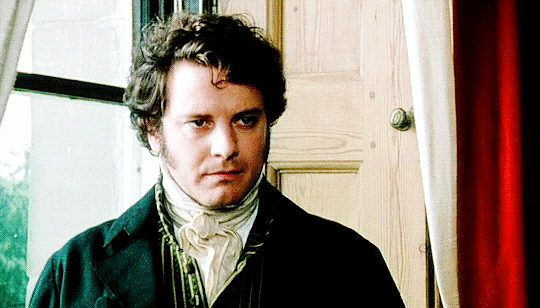
3 notes
·
View notes
Text
Terry Eagleton probably isn't my father, but it's crazy how me and Literary Theory: An Introduction dropped at the same time. Anyway, this book was also written specifically for me, but you are welcome to enjoy it too
19 notes
·
View notes
Text
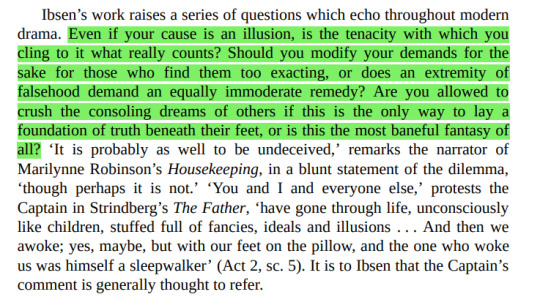
TRAGEDY by Terry Eagleton
4 notes
·
View notes
Text
The aesthete, then, possesses more of the truth than the political left generally imagines. The point is not to substitute art for life, but to convert life into art. Living like a work of art means fully realising one’s capacities – this is Marx’s ethics. It is also the basis of his politics: socialism is whatever set of institutional arrangements would allow this to happen to the greatest extent. If artistic work is a scandal to the status quo, it is not because it champions the proletariat but because to live abundantly in this way isn’t possible under capitalism. Art prefigures a future in which human energies can exist simply for their own delight. Where art was, there shall humanity be.
Terry Eagleton, Be like the Silkworm
18 notes
·
View notes
Text
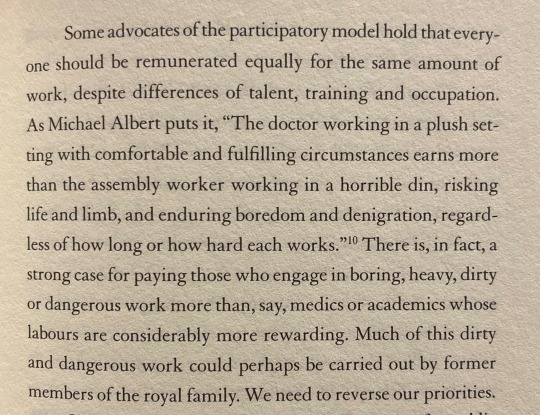
Why Marx Was Right, Terry Eagleton
#marxism#communist#socialist#communism#revolution#marxist#marxist leninist#socialism#marxist theory#why marx was right#terry eagleton
2 notes
·
View notes
Text
Terry Eagleton – İngiliz Romanı (2023)
Çağımızın önde gelen edebiyat teorisyenlerinden Terry Eagleton, İngiliz Romanı’nda İngiliz edebiyatında romanın ortaya çıkışı, gelişimi, temaları ve problemlerini titiz bir inceleme ve özgün bir yaklaşımla ortaya koyuyor.
Daniel Defoe’dan Jonathan Swift’e, Laurence Sterne’den Charles Dickens’a, George Eliot’tan Henry James’e, James Joyce’dan Virginia Woolf’a belli başlı İngiliz romancılarını…
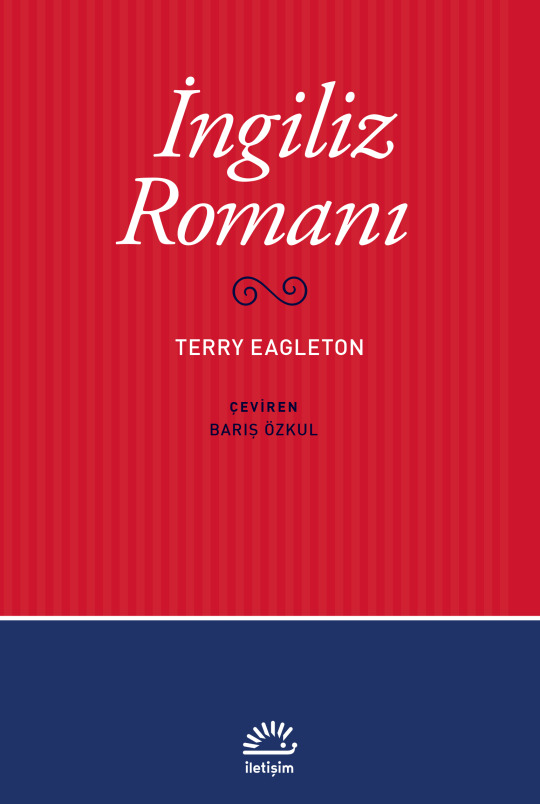
View On WordPress
1 note
·
View note
Text
nerede bulunursanız bulunun zaman yaşanmaz olacaktır kısa sürede.
nereye gideceksiniz bunu bildiğinize göre?
emil cioran - parçalanma
#emil cioran#parçalanma#çürümenin kitabı#gözyaşları ve azizler#terry eagleton#hayatın anlamı#bilge karasu#karl jaspers#franz kafka#dönüşüm#oblomov#dostoyevski#lucius annaeus seneca#stoic philosophy#stoa felsefesi#antik yunan#sokrates#platon#friedrich nietzsche#böyle buyurdu zerdüşt#felsefe blog#felsefe#milan kundera#varolmanın dayanılmaz hafifliği#albert camus#bulantı#yabancı#sisifos söyleni#ahmet altan#blogger
19 notes
·
View notes
Text
“Catherine’s conviction that she is Heathcliff, that because their identities are at one she can never fundamentally betray him, unsurprisingly fails to impress Heathcliff himself, who would rather be a real-life lover than an ontological essence”.
Terry Eagleton, from his book The English Novel
10 notes
·
View notes
Text
We are ushered into a depthless, deregulated world of appetite, self-interest & purely vacuous freedom in which anything goes, held together only by the rigour of literary style. Style in Amis is what rises triumphantly above the squalor of his material. Its shapeliness & finesse constitute an implicit critique of contemporary culture, which saved him from anything as uncool as having to pass explicit moral judgements on it.
Terry Eagleton on Martin Amis,
0 notes
Text
TERRY EAGLETON: Estetička kritika kapitalizma
Prikaz knjige Ludovica Silve „Marx’ Literary Style / Marksov književni stil“; Verso, 2023.
Dok je u Britanskom muzeju radio na Kapitalu, opsedan poveriocima i čirevima, Karl Marks se žalio ne samo zbog toga što niko nikad nije toliko pisao o novcu, a tako malo ga imao, već i zato što ga „ekonomsko smeće“ odvaja od pisanja velike knjige o Balzaku. Njegovo delo vrvi od aluzija na Homera, Sofokla,…
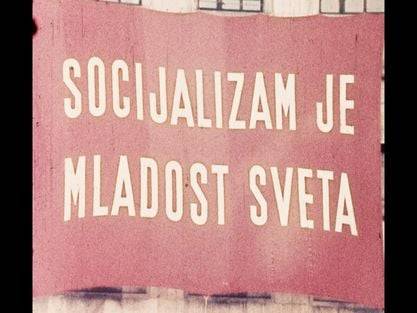
View On WordPress
0 notes